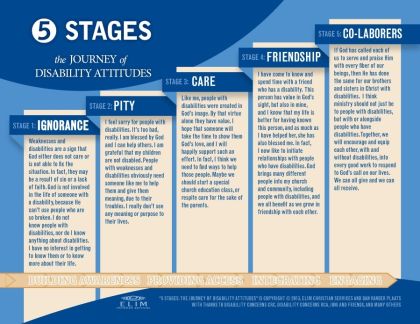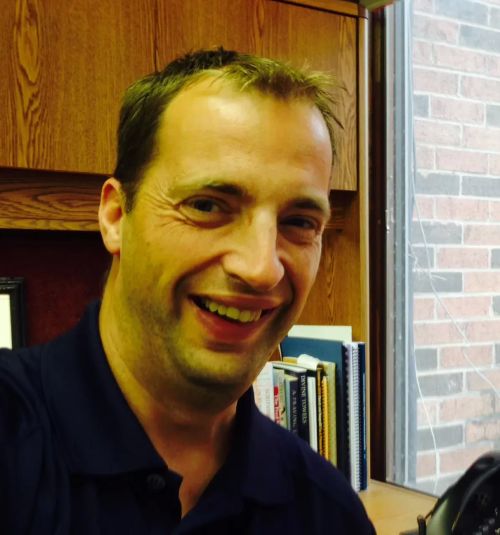Maybe It's All in the Attitude
Every Christian is on a Journey of Disability Attitudes
Four years ago, I was at a restaurant with other members of our team from Elim Christian Services, an organization in the Chicago area that provides resources for hundreds of people with developmental disabilities and for the people who serve them. Our server came over and went around the table, asking each of us our names. When she came across two of our friends with disabilities, her tone changed from peer-to-peer to adult-to-child. I thought she was just being nice until she used the same tone on me because I have a speech impediment. I sound like (and I am) a person with a developmental disability.
I was annoyed and offended, and later, I got angry. For the entire 37 years of my life, I had avoided being categorized with people who had disabilities, not being treated like them.
My experience with the restaurant server made me realize that the very attitudes I hated about other people were the same attitudes I had toward people with disabilities. I realized it was all about my attitude and that perhaps if I tried to make sense of my journey, I might be able to help others. That night, I started working on a self-assessment tool called “The 5 Stages: The Journey of Disability Attitudes,” I’m excited to share it with you today. I hope it will help you encourage others to change their attitudes as well.
Where are You on the Journey?
Working with many others, I have identified 5 stages that we all (yes, you too) have the opportunity to go through as our attitudes toward people with disabilities change. Here they are:

STAGE 1: IGNORANCE
Weaknesses and disabilities are a sign that God either does not care or is not able to fix the situation. In fact, disability may be a result of sin or a lack of faith. I have no interest in getting to know them or to know more about their lives.
STAGE 2: PITY
I feel sorry for people with disabilities. It’s too bad, really. I am blessed by God, and I can help others. I am grateful that my children are not disabled. I really don’t see any meaning or purpose in their lives.
STAGE 3: CARE
Like me, people with disabilities were created in God’s image. By that virtue alon they have value. I hope that someone will take the time to show them God’s love, and I will happily support such an effort. In fact, we need to find ways to help those people.
STAGE 4: FRIENDSHIP
I have a friend who has a disability. This person has value in God’s sight, but also in mine, and I know that my life is better for having known this person, and as much as I have helped her, she has also blessed me.
STAGE 5: CO-LABORERS
If God has called each of us to serve and praise Him with every fiber of our being, then He has done the same for our brothers and sisters in Christ with disabilities. I think ministry should not just be to people with disabilities but with or alongside people who have disabilities. We can all give, and we can all receive.
If It’s All in the Attitude, What Will You Do to Change It?
So, with these 5 Stages in your hand, I hope that you will do the following:
- Assess your own disability attitude and identify one step you can take to change that attitude for the better. (I’d love to hear what that step is – let me know by commenting below.)
- Familiarize yourself with the spectrum of attitudes (you can even use the diagram provided here) so that you can share it easily with others.
- Commit to simply showing the diagram to two other people and asking them for their thoughts. You’ll be amazed at the conversations you’ll have!
Learn more about the 5 Stages in this video from Dan and his friends at Elim Christian Services.
5 Stages Presentation (Short) from Elim Christian Services on Vimeo.

Dan Vander Plaats
Dan Vander Plaats is the Director of Stewardship at Elim Christian Services in Palos Heights, IL, a ministry that provides resources to children and adults with special needs, and training resources to those who serve them. He is also a member of the advisory committee for Disability Concerns for the Christian Reformed Church. In 2009 he compiled “5 Stages: The Journey of Disability Attitudes,” a document that helps churches and individuals assess their attitudes toward people with disabilities. He is married to Denise (Hiemstra), and is father to Ben and Emma. They are members of Orland Park Christian Reformed Church.
